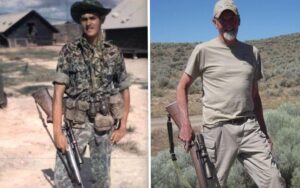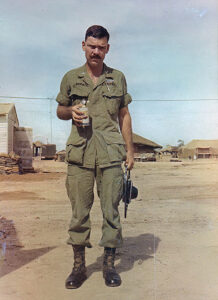This is my last issue as editor of Vietnam Magazine. Just about nine years ago I assumed the mantle from our founding editor, Harry Summers. At the time I had second thoughts, because the areas of my expertise as a military historian had always been World Wars I and II. But Harry was a friend of mine, one of my mentors. And he was one of the first military analysts to bring clarity and focus to what up to that point had been the witches brew of myths, ideologically-driven stereotypes, self-righteous finger-pointing, and self-justification that passed for Vietnam War history. War is the most complex and perplexing of all human activities, and Harry’s Vietnam was dedicated to documenting and recording “the many truths about Vietnam.” As both a Vietnam veteran and a military historian, I felt an obligation to keep Harry’s vision going.
Over the course of the past 52 issues we have tried hard to do just that. Appropriately, my last issue is our annual Tet number, always my favorite. We have a great lineup for this issue, but I want to highlight two articles in particular.
The article on Sergeant First Class Wayne Slagel, with a sidebar on Master Sergeant Henry Jenkins, tells a story of two great American heroes. They are the only two soldiers ever to earn the Combat Medical Badge with two stars, indicating their service as frontline medics in three wars—World War II, Korea, and Vietnam. Although the Combat Infantryman Badge with two stars was awarded to approximately 250 GIs, the CMB with two stars is probably the rarest American military award ever. More people need to know about Docs Slagel and Jenkins.
The second article, about the battle for Hill 108 shortly before Tet, is written by Lt. Col. (Ret.) John Gross. John was my company commander in late 1967 and early 1968. We called him The King. He was only a couple years older than the rest of us 19- and 20-year olds, but we trusted him with our lives and we would follow him anywhere. Although I was one of his most doofus Pfcs, I learned a great deal from him. He was always a role model for me, and many years later when I became an officer he was my benchmark of what an officer should be. I’m honored to have his article in my last issue.
Although I’m no longer the editor as of the next issue, I will remain deeply involved with each new issue of Vietnam as editor emeritus. Recently, I also became the senior historian of the World History Group, which gives me a great opportunity to work on more of the several Weider magazines and on a broader range of history. My replacement as editor is Roger Vance, who is no stranger to Vietnam. As the editorial director of the group for several years, he has been involved with Vietnam Magazine even longer than I have.
My most sincere thanks to our many readers, who since our first issue in 1988 have loyally supported this special magazine that is preserving the past and educating future generations about what really happened in Vietnam.
David T. Zabecki




